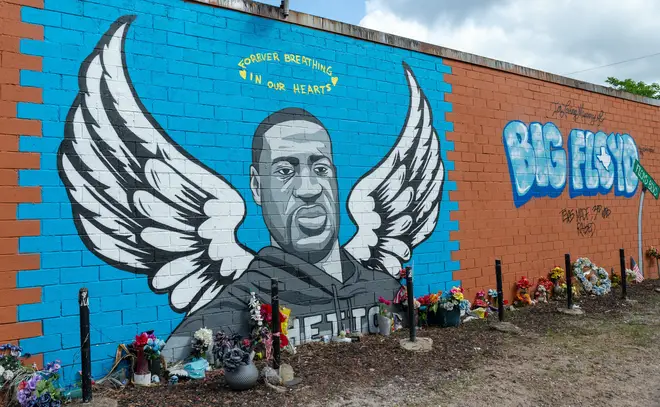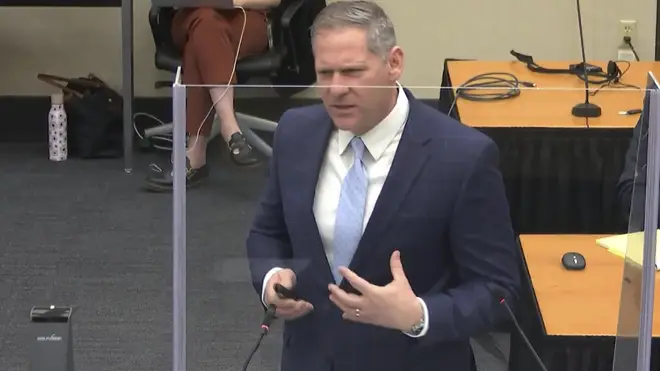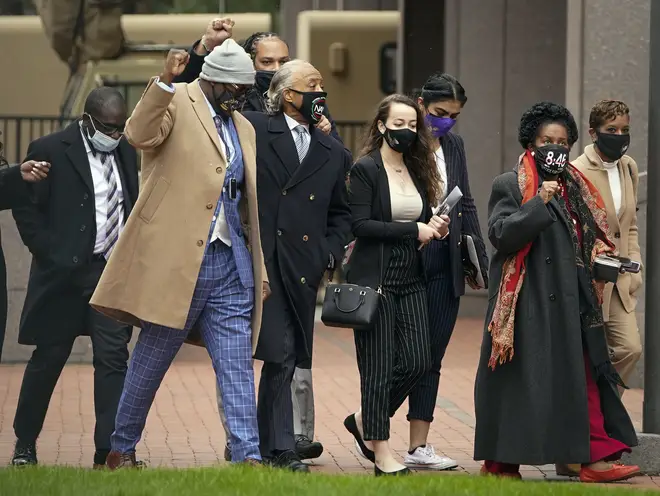
Henry Riley 4am - 7am
19 April 2021, 18:34 | Updated: 19 April 2021, 23:41

The jury in the murder trial of former police officer Derek Chauvin, who is accused of killing George Floyd last year, has retired to consider its verdict.
It comes after prosecution and defence lawyers completed their closing arguments on Monday.
The jury will deliberate in a central courthouse in the city of Minneapolis surrounded by concrete barriers and razor wire.
Deliberations could last a number of days or even weeks.
READ MORE: Derek Chauvin: Defence begins its case at George Floyd trial
The city is on edge amid fears of a repeat of the violence that erupted last spring over the video of Mr Floyd with Chauvin's knee on his neck.
National Guard members are already out in force just days after fresh outrage erupted over the police killing of a 20-year-old black man in a nearby suburb.
Prosecutor Steve Schleicher told the court Mr Floyd was "just a man, lying on the pavement, being pressed upon, desperately crying out. A grown man crying out for his mother. A human being".

He sought to convince the jury that Chauvin was responsible for killing Mr Floyd by pinning him to the pavement for nine minutes and 29 seconds outside a corner shop last May.
Prosecutors have said those actions, despite Mr Floyd's repeated cries that he could not breathe, were reckless, unreasonable and warrant conviction not just for manslaughter but also on two murder counts.
The defence for the now-fired officer has contended Mr Floyd, who was 46, put himself at risk by using fentanyl and methamphetamine, then resisted officers trying to arrest him - factors that combined with his heart disease to lead to his death.
A few protesters gathered outside the courthouse on Monday as light snowflakes blew in the wind.

Chauvin, 45, is charged with second-degree murder, third-degree murder and second-degree manslaughter.
All three charges require the jury to conclude that Chauvin's actions were a "substantial causal factor" in Mr Floyd's death - and that his use of force was unreasonable.
Second-degree murder requires prosecutors to prove Chauvin intended to harm Floyd, but not that he intended to kill him.
Third-degree murder requires proof that Chauvin's actions were "eminently dangerous" and done with indifference to loss of life.

Second-degree manslaughter requires jurors to believe that he caused Mr Floyd's death through negligence and consciously took the chance of causing severe injury or death.
Judge Peter Cahill has instructed jurors that they will consider each charge against Chauvin separately.
Each carries a different maximum sentence: 40 years for second-degree unintentional murder, 25 years for third-degree murder, and 10 years for second-degree manslaughter.
Sentencing guidelines call for less time, including 12-and-a-half years on either murder count.